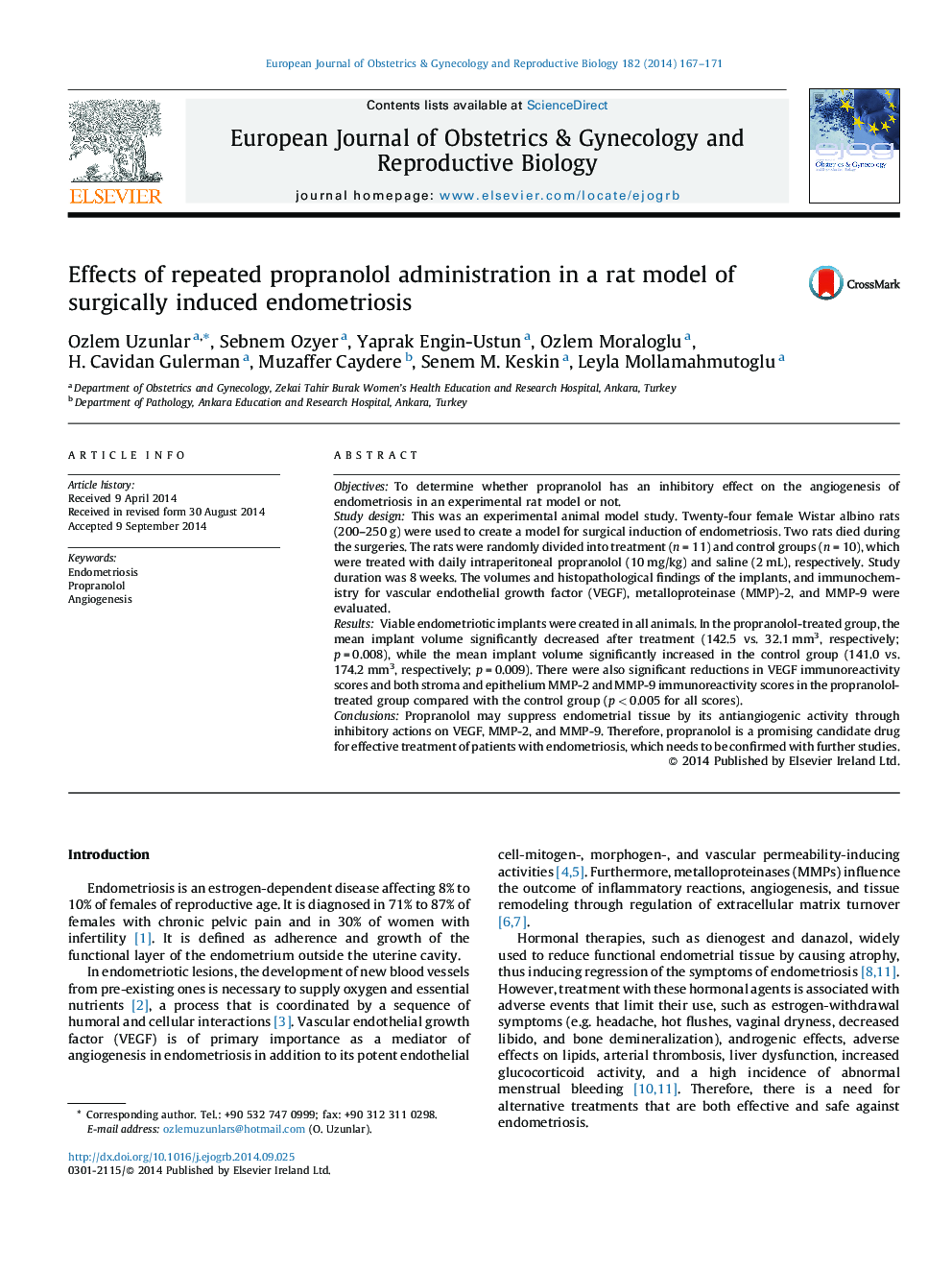| Article ID | Journal | Published Year | Pages | File Type |
|---|---|---|---|---|
| 6173399 | European Journal of Obstetrics & Gynecology and Reproductive Biology | 2014 | 5 Pages |
ObjectivesTo determine whether propranolol has an inhibitory effect on the angiogenesis of endometriosis in an experimental rat model or not.Study designThis was an experimental animal model study. Twenty-four female Wistar albino rats (200-250 g) were used to create a model for surgical induction of endometriosis. Two rats died during the surgeries. The rats were randomly divided into treatment (n = 11) and control groups (n = 10), which were treated with daily intraperitoneal propranolol (10 mg/kg) and saline (2 mL), respectively. Study duration was 8 weeks. The volumes and histopathological findings of the implants, and immunochemistry for vascular endothelial growth factor (VEGF), metalloproteinase (MMP)-2, and MMP-9 were evaluated.ResultsViable endometriotic implants were created in all animals. In the propranolol-treated group, the mean implant volume significantly decreased after treatment (142.5 vs. 32.1 mm3, respectively; p = 0.008), while the mean implant volume significantly increased in the control group (141.0 vs. 174.2 mm3, respectively; p = 0.009). There were also significant reductions in VEGF immunoreactivity scores and both stroma and epithelium MMP-2 and MMP-9 immunoreactivity scores in the propranolol-treated group compared with the control group (p < 0.005 for all scores).ConclusionsPropranolol may suppress endometrial tissue by its antiangiogenic activity through inhibitory actions on VEGF, MMP-2, and MMP-9. Therefore, propranolol is a promising candidate drug for effective treatment of patients with endometriosis, which needs to be confirmed with further studies.
